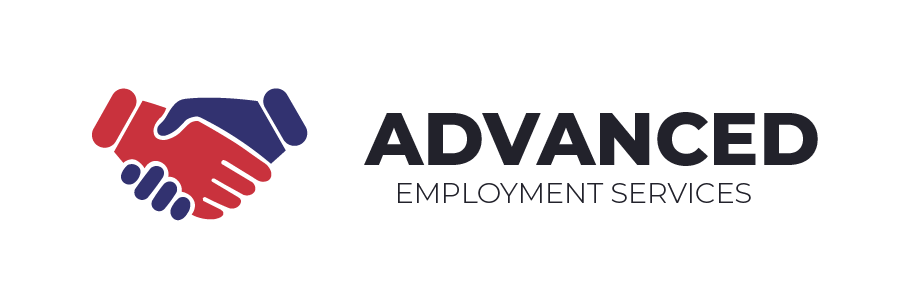Table of Contents
Career planning is an essential process for anyone looking to build a fulfilling and successful professional life. Whether you’re just starting out or considering a career change, having a well-thought-out plan can help you make informed decisions and take the necessary steps to achieve your goals. This article will guide you through the fundamentals of career planning, how to find your career path, and the essential career steps to get started.
What is Career Planning?
Career planning is a systematic process of setting career goals and developing strategies to achieve them. It involves assessing your skills, interests, and values, exploring career options, and creating a roadmap to reach your desired career objectives. The process is dynamic and ongoing, requiring regular reflection and adjustments as you grow and your circumstances change.
The Importance of Career Planning
Having a clear career plan offers several benefits:
- Direction: It provides a clear sense of direction, helping you focus on achieving specific career goals rather than drifting aimlessly.
- Motivation: Knowing what you want to achieve keeps you motivated and committed to your professional development.
- Decision-Making: A well-thought-out plan helps you make informed decisions about education, job opportunities, and career changes.
- Adaptability: Career planning prepares you for unforeseen challenges by giving you a framework to adapt and pivot when necessary.

How to Find My Career: A Step-by-Step Guide
How do I find my career? The answer lies in self-discovery and exploration. Here are the steps to help you identify a career that aligns with your passions and strengths:
1. Self-Assessment
The first step in career planning is understanding yourself. Self-assessment tools and exercises can help you identify your interests, values, skills, and personality traits. Consider the following:
- Interests: What subjects or activities do you enjoy? What topics do you find yourself drawn to in conversations, books, or media?
- Values: What principles and values are important to you? Consider aspects like work-life balance, job security, creativity, and social impact.
- Skills: What are your strengths? Think about the skills you’ve developed through education, work, and life experiences.
- Personality: Consider your personality type and how it influences your work style. Are you an introvert or extrovert? Do you prefer working alone or in teams?
Tools like the Myers-Briggs Type Indicator (MBTI), Strong Interest Inventory, and CliftonStrengths can provide valuable insights into your personality and interests.
2. Research Career Options
Once you have a clear understanding of yourself, the next step is to explore different career options. Research industries, job roles, and companies that align with your interests, values, and skills. Consider the following:
- Industry Trends: Look at the demand for jobs in different industries and the growth potential. Some fields, like technology and healthcare, are expanding rapidly, offering a wide range of opportunities.
- Job Roles: Explore specific job roles within your chosen industry. For example, if you’re interested in healthcare, you could consider roles like a nurse, medical technician, or healthcare administrator.
- Company Culture: Research companies that match your values and work style. Consider factors like company size, work environment, and opportunities for growth.
Informational interviews with professionals in your areas of interest can provide valuable insights and help you build a network.
3. Set Career Goals
With a better understanding of your career options, it’s time to set specific, measurable, achievable, relevant, and time-bound (SMART) goals. These goals will serve as milestones on your career journey. Consider short-term, medium-term, and long-term goals:
- Short-Term Goals: These are immediate steps you can take, such as completing a certification, attending a workshop, or improving a specific skill.
- Medium-Term Goals: These might include getting a promotion, switching to a new role, or gaining more experience in your current field.
- Long-Term Goals: These are your ultimate career aspirations, such as becoming a senior executive, starting your own business, or transitioning to a new industry.

Essential Career Steps to Get Started
Once you’ve set your career goals, the next phase is to take actionable steps toward achieving them. Here are some essential career steps to guide you:
Education and Training
Education and training are crucial components of career planning. Depending on your chosen field, you may need to pursue additional qualifications, certifications, or specialized training. Consider the following:
- Formal Education: Enroll in degree programs, community college courses, or online classes to gain the necessary qualifications.
- Certifications: Many industries offer certifications that can enhance your skills and make you more competitive in the job market.
- Workshops and Seminars: Attend workshops, seminars, and conferences to stay updated on industry trends and network with professionals.
Remember that learning is a lifelong process. Continuously seek opportunities to improve your knowledge and skills.
Build a Professional Network
Networking is a powerful tool in career planning. Building relationships with professionals in your field can open doors to job opportunities, mentorship, and valuable advice. Here’s how to get started:
- Attend Industry Events: Participate in conferences, seminars, and networking events related to your industry.
- Join Professional Associations: Become a member of industry-specific organizations to connect with like-minded professionals.
- Use Social Media: Platforms like LinkedIn are excellent for networking, sharing your achievements, and staying connected with industry trends.
A strong network can provide support, guidance, and job leads as you progress in your career.
Gain Experience
Experience is often a critical factor in career advancement. Whether through internships, part-time jobs, or volunteer work, gaining practical experience can help you develop relevant skills and build a strong resume. Consider the following:
- Internships: Many industries offer internship programs that provide hands-on experience and a foot in the door.
- Part-Time Jobs: Working part-time in your desired field can help you gain valuable experience while continuing your education or exploring other opportunities.
- Volunteering: Volunteer work can provide experience and demonstrate your commitment to a cause, which can be appealing to employers.
Remember that all experience is valuable, even if it doesn’t directly align with your ultimate career goals.
Develop Your Resume and Cover Letter
A well-crafted resume and cover letter are essential tools in your job search. These documents should highlight your skills, experience, and achievements in a way that appeals to potential employers. Here are some tips:
- Resume: Keep your resume concise and focused on your most relevant experience. Use bullet points to outline your achievements and responsibilities in previous roles.
- Cover Letter: Customize your cover letter for each job application. Use it to explain why you’re interested in the position and how your skills and experience make you a good fit.
- Portfolio: In some fields, such as design, writing, or photography, a portfolio showcasing your work can be a valuable addition to your application.
Regularly update your resume and cover letter as you gain new experience and skills.
Job Search Strategies
Once you’ve prepared your resume and cover letter, it’s time to start your job search. Effective job search strategies can help you find opportunities that align with your career goals. Consider the following:
- Online Job Boards: Use job boards like Indeed, Glassdoor, and LinkedIn to search for job openings in your desired field.
- Company Websites: Many companies post job openings on their websites. Regularly check the career pages of companies you’re interested in.
- Recruitment Agencies: Consider working with recruitment agencies like Advanced Employment Services, which can connect you with job opportunities and provide guidance throughout the hiring process.
Persistence and patience are key during the job search process. Stay organized, keep track of your applications, and follow up with employers when necessary.
Advanced Employment Services: Your Partner in Career Planning
Career planning can be overwhelming, but you don’t have to do it alone. Advanced Employment Services is here to help you navigate your career journey. Whether you’re just starting out, considering a career change, or looking for your next opportunity, our team of experts can provide the support and guidance you need.
We offer a range of services, including career counseling, resume writing, interview preparation, and job placement assistance. We aim to help you find a career that aligns with your passions and goals.
Conclusion
Career planning is a vital process that requires self-reflection, research, and strategic action. By understanding your strengths and interests, setting clear goals, and taking the necessary steps to achieve them, you can build a fulfilling and successful career. Remember, career planning is an ongoing journey. With the right support, such as that offered by Advanced Employment Services, you can navigate the challenges and opportunities that come your way.
Start your career planning today, and take the first step towards finding the career that’s right for you.



